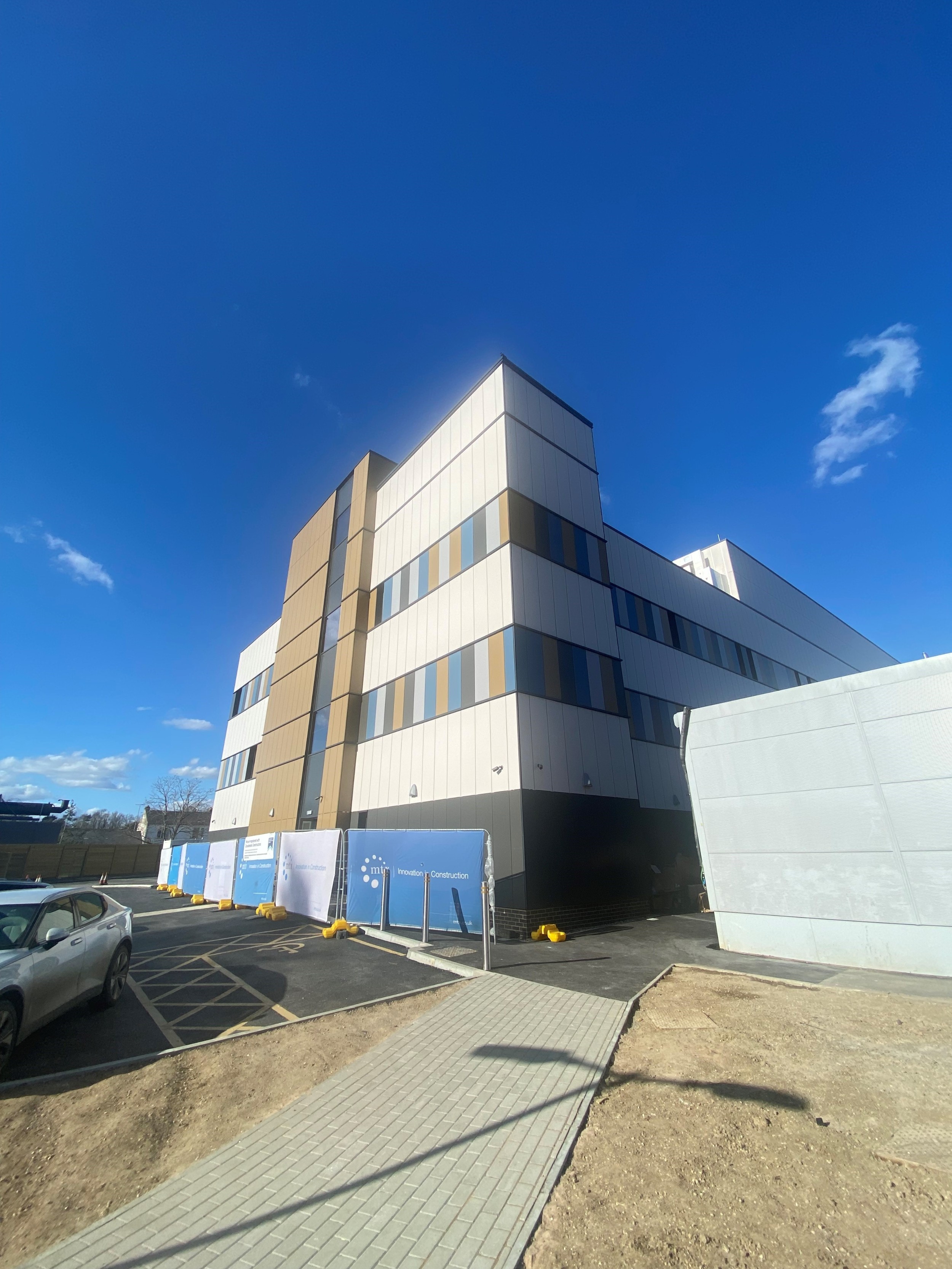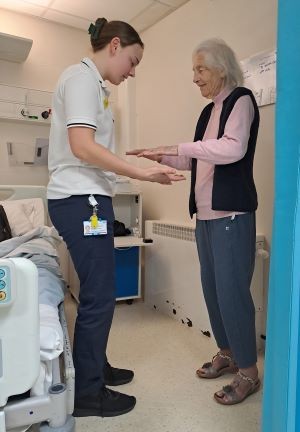
New diagnostic and inpatient building opens to patients
Date published: 31 May 2024
Research into ways to boost recovery following a stroke has changed physiotherapy sessions at Frimley Health.

A variety of mobility sessions provided by physiotherapists and nurses are monitored as part of the trial, taking into account the abilities of individual patients and providing pages of daily data. It is the first Trust study to have a physio, Bryony Skelton, as the principal investigator.
“It has been a really positive experience having physio-led research happening,” she said. “It has already led to practical changes on the ward, following the guidance of a previous trial. We now see patients in the first two weeks after their stroke for two shorter sessions rather than one longer one each day, and we don’t mobilise patients with haemorrhagic strokes or severe ischaemic strokes in the first 24 hours. The original trial showed that patients had improved functional recovery and fewer complications if this guidance was followed.”
A stroke happens when the blood supply to part of the brain is cut off, killing brain cells. A haemorrhagic stroke is caused by bleeding into the brain tissue. Ischaemic strokes, the more common type of stroke, happen when a blood clot blocks the flow of blood and oxygen to the brain.
The Avert Dose study aims for a “rehab ethos” on the ward, encouraging the nursing staff to help patients be more active. Bryony said the aim was to make that ethos the general practise on the ward for all patients, whether they were part of the trial or not.
“We have introduced laminated sheets over each patient’s bed with visual illustrations of what the patient can do functionally, such as having a wash standing up rather than sitting, having meals sitting in the chair rather than in bed, and promoting patients getting dressed into their own clothes,” she said. “All of these things are really important for recovery and optimising function after a stroke.”
Valerie from Esher - pictured working on balancing exercises with physio Celia Orthmann - was about to head home after spending almost two weeks on the ward.
To begin with, she only felt comfortable walking while holding on to other people, but said the team at Frimley Park had given her huge support. “The help I’ve had here has really made a difference,” she said. “All the exercises with the staff, plus the balancing work I’ve done with the physios in the gym. I can walk on my own without using the stick, if I choose. I feel much more confident.”
The Avert Dose study will finish this year. The results will help shape the future treatment of stroke patients.
For more on the stroke treatments provided by Frimley Health, visit the web page Stroke services | NHS Frimley Health Foundation Trust (fhft.nhs.uk).